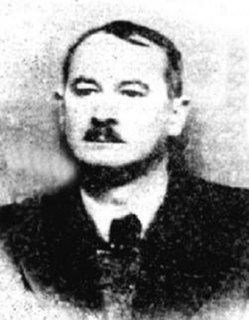 W
WFelix Aderca or F. Aderca, was a Romanian novelist, playwright, poet, journalist and critic, noted as a representative of rebellious modernism in the context of Romanian literature. As a member of the Sburătorul circle and close friend of its founder Eugen Lovinescu, Aderca promoted the ideas of literary innovation, cosmopolitanism and art for art's sake, reacting against the growth of traditionalist currents. His diverse works of fiction, noted as adaptations of Expressionist techniques over conventional narratives, range from psychological and biographical novels to pioneering fantasy and science fiction writings, and also include a sizable contribution to erotic literature.
 W
WIon Agârbiceanu was an Austro-Hungarian-born Romanian writer, journalist, politician, theologian and Greek-Catholic priest. A native of Transylvania, he graduated from Budapest University, after which he was ordained. He was initially assigned to a parish in the Apuseni Mountains, which form the backdrop to much of his fiction. Before 1910, Agârbiceanu had achieved literary fame in both Transylvania and the Kingdom of Romania; his work was disputed between the rival schools of Sămănătorul and Poporanism.
 W
WZamfir Constantin Arbore was a Bukovinian-born Romanian political activist originally active in the Russian Empire, also known for his work as an amateur historian, geographer and ethnographer. Arbore debuted in left-wing politics from early in life, gained an intimate knowledge of the Russian revolutionary milieu, and participated in both nihilist and Narodnik conspiracies. Self-exiled to Switzerland, he became a member of the International Workingmen's Association. Arbore was mostly active as an international anarchist and a disciple of Mikhail Bakunin, but eventually parted with the latter to create his independent group, the Revolutionary Community. He was subsequently close to the anarchist geographer Élisée Reclus, who became his new mentor.
 W
WTudor Arghezi was a Romanian writer, best known for his unique contribution to poetry and children's literature. Born Ion N. Theodorescu in Bucharest, he explained that his pen name was related to Argesis, the Latin name for the Argeș River.
 W
WNicolae Constantin Batzaria, was a Macedonian-born Aromanian cultural activist, Ottoman statesman and Romanian writer. A schoolteacher and inspector of Aromanian education within Ottoman lands, he established his reputation as a journalist before 1908. During his thirties, he joined the clandestine revolutionary movement known as the Young Turks, serving as its liaison with Aromanian factions. The victorious Young Turk Revolution brought Batzaria to the forefront of Ottoman politics, ensuring him a seat in the Ottoman Senate, and he briefly served as Minister of Public Works under the Three Pashas. He was tasked with several diplomatic missions, including attending the London Conference of 1913, but, alerted by the Three Pashas' World War I alliances and the Young Turks' nationalism, he soon after quit the Ottoman political scene and left into voluntary exile.
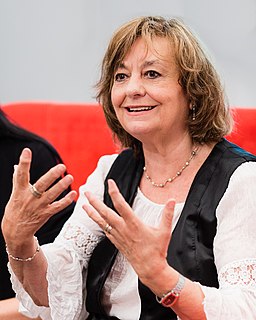 W
WAna Blandiana is a Romanian poet, essayist, and political figure. She is considered one of the leading contemporary Romanian authors. She took her name after Blandiana, near Vințu de Jos, Alba County, her mother's home village.
 W
WNina Cassian was a Romanian poet, children's book writer, translator, journalist, accomplished pianist and composer, and film critic. She spent the first sixty years of her life in Romania until she moved to the United States in 1985 for a teaching job. A few years later Cassian was granted permanent asylum and New York City became her home for the rest of her life. Much of her work was published both in Romanian and in English.
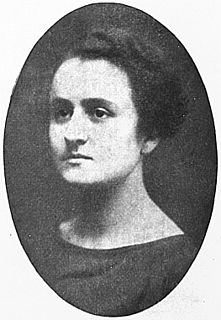 W
WOtilia Cazimir was a Romanian poet, prose writer, translator and publicist, nicknamed the "poetess of gentle souls", known as a children's poems author.
 W
WIordan Chimet was a Romanian poet, children's writer and essayist, whose work was inspired by Surrealism and Onirism. He is also known as a memoirist, theater, art and film critic, book publisher and translator. Chimet, who was an opponent of totalitarianism in general and of the Communist regime in particular, was persecuted by the latter as a dissident, and lived much of his life in obscurity. His experience as an employee of the cooperative society Centrocoop also made him one of the first professional copywriters in his country.
 W
WDaniela-Carmen Crăsnaru is a Romanian poet whose works have been widely translated. She has also written short stories and works for children. From 1990 to 1992, Crăsnaru was a deputy in the Romanian parliament, representing the National Salvation Front (FSN).
 W
WIon Creangă was a Romanian writer, raconteur and schoolteacher. A main figure in 19th century Romanian literature, he is best known for his Childhood Memories volume, his novellas and short stories, and his many anecdotes. Creangă's main contribution to fantasy and children's literature includes narratives structured around eponymous protagonists, as well as fairy tales indebted to conventional forms. Widely seen as masterpieces of the Romanian language and local humor, his writings occupy the middle ground between a collection of folkloric sources and an original contribution to a literary realism of rural inspiration. They are accompanied by a set of contributions to erotic literature, collectively known as his "corrosives".
 W
WGabriella Csire is a Romanian writer, children's literature author. Children: Csire Gábor
 W
WGeorge Ion Diamandy or Diamandi, first name also Gheorghe or Georges, was a Romanian politician, dramatist, social scientist, and archeologist. Although a rich landowner of aristocratic background, he was one of the pioneers of revolutionary socialism in France and Romania, obtaining international fame as founder of L'Ère Nouvelle magazine. He was an early affiliate of the Romanian Social-Democratic Workers' Party, but grew disenchanted with its radical policies, and, as a member of its "generous youth" faction, played a major part in dissolving it. With other members of this reformist group, he joined the National Liberal Party, serving as one of its representatives in Chamber.
 W
WNeagu Bunea Djuvara was a Romanian historian, essayist, philosopher, journalist, novelist, and diplomat.
 W
WEmil Dorian was a Romanian poet and prose writer, as well as a physician.
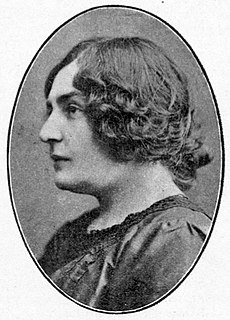 W
WElena Farago was a Romanian poet and children's author. She also translated works by Ibsen, Nietzsche, Maeterlinck and numerous others into Romanian.
 W
WCălin Gruia was a Romanian writer, author mainly of children's fairy tales and poems.
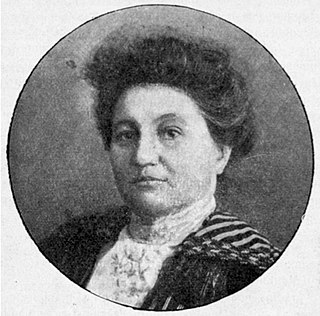 W
WConstanța Hodoș was an Imperial Austrian-born Romanian novelist, playwright and opinion journalist.
 W
WBarbu Lăzăreanu was a Romanian literary historian, bibliographer, and left-wing activist. Of Romanian Jewish background, he became noted for both his social criticism and his lyrical pieces while still in high school, subsequently developing as a satirist and printing his own humorous magazine, Țivil-Cazon. Lăzăreanu's youthful sympathies veered toward the anarchist underground, prompting him to associate with Panait Mușoiu.
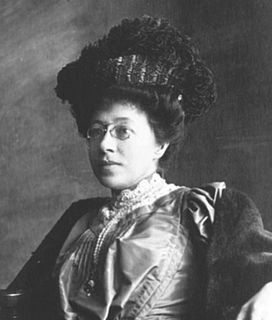 W
WMărgărita Miller-Verghy was a Romanian socialite and author, also known as a schoolteacher, journalist, critic and translator. A cultural animator, she hosted a literary club of Germanophile tendencies during the early part of World War I, and was later involved with Adela Xenopol in setting up feminist cultural venues. Her main contributions to Romanian literature include translations from English literature, a history of feminine writing in the national context, a novella series and an influential work of detective fiction. Many of her other works have been described as mediocre and didactic.
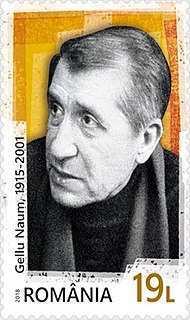 W
WGellu Naum was a prominent Romanian poet, dramatist, novelist, children's writer, and translator. He is remembered as the founder of the Romanian Surrealist group. The artist Lygia Naum, his wife, was the inspiration and main character in his 1985 novel Zenobia.
 W
WCezar Petrescu was a Romanian journalist, novelist, and children's writer.
 W
WMarta D. Rădulescu was a Romanian poet, journalist, and novelist, made famous in the 1930s for her autofictional work. From an academic family with a penchant for radical politics, she veered into fascist politics, supporting the Iron Guard. The commitment shaped part of her work, which, from a satirical rendition of education in the provinces, becomes a document of interwar radicalization and student political battles. Scandal followed the publication of her early prose works, particularly after claims that they had been largely or entirely written by her father—or, alternatively, by her friend and putative lover N. Crevedia. Her polemic with Crevedia was consumed in the national press and in books written by both participants.
 W
WMihail Sadoveanu was a Romanian novelist, short story writer, journalist and political figure, who twice served as acting head of state for the communist republic. One of the most prolific Romanian-language writers, he is remembered mostly for his historical and adventure novels, as well as for his nature writing. An author whose career spanned five decades, Sadoveanu was an early associate of the traditionalist magazine Sămănătorul, before becoming known as a Realist writer and an adherent to the Poporanist current represented by Viața Românească journal. His books, critically acclaimed for their vision of age-old solitude and natural abundance, are generally set in the historical region of Moldavia, building on themes from Romania's medieval and early modern history. Among them are Neamul Șoimăreștilor, Frații Jderi and Zodia Cancerului. With Venea o moară pe Siret..., Baltagul and some other works of fiction, Sadoveanu extends his fresco to contemporary history and adapts his style to the psychological novel, Naturalism and Social realism.
 W
WProfira Sadoveanu was a Romanian prose writer and poet.
 W
WGeorge Silviu was a Romanian poet, playwright, translator and lawyer.
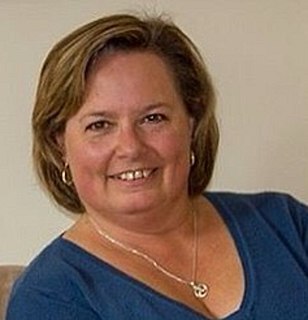 W
WPrincess Sophie of Romania is the fourth daughter of King Michael I and Queen Anne of Romania.
 W
WAlexandru Toma was a Romanian poet, journalist and translator, known for his communist views and his role in introducing Socialist Realism to Romanian literature. Having debuted as a Symbolist, Toma was influenced by 19th-century writer Mihai Eminescu, an admiration which came to characterize his entire work. The official poet during the early years of the Communist regime and appointed a full member of the Romanian Academy, he is considered by many commentators to have actually been a second-shelf writer, with a problematic legacy.
 W
WGeorge Topîrceanu was a Romanian poet, short story writer, and humourist.